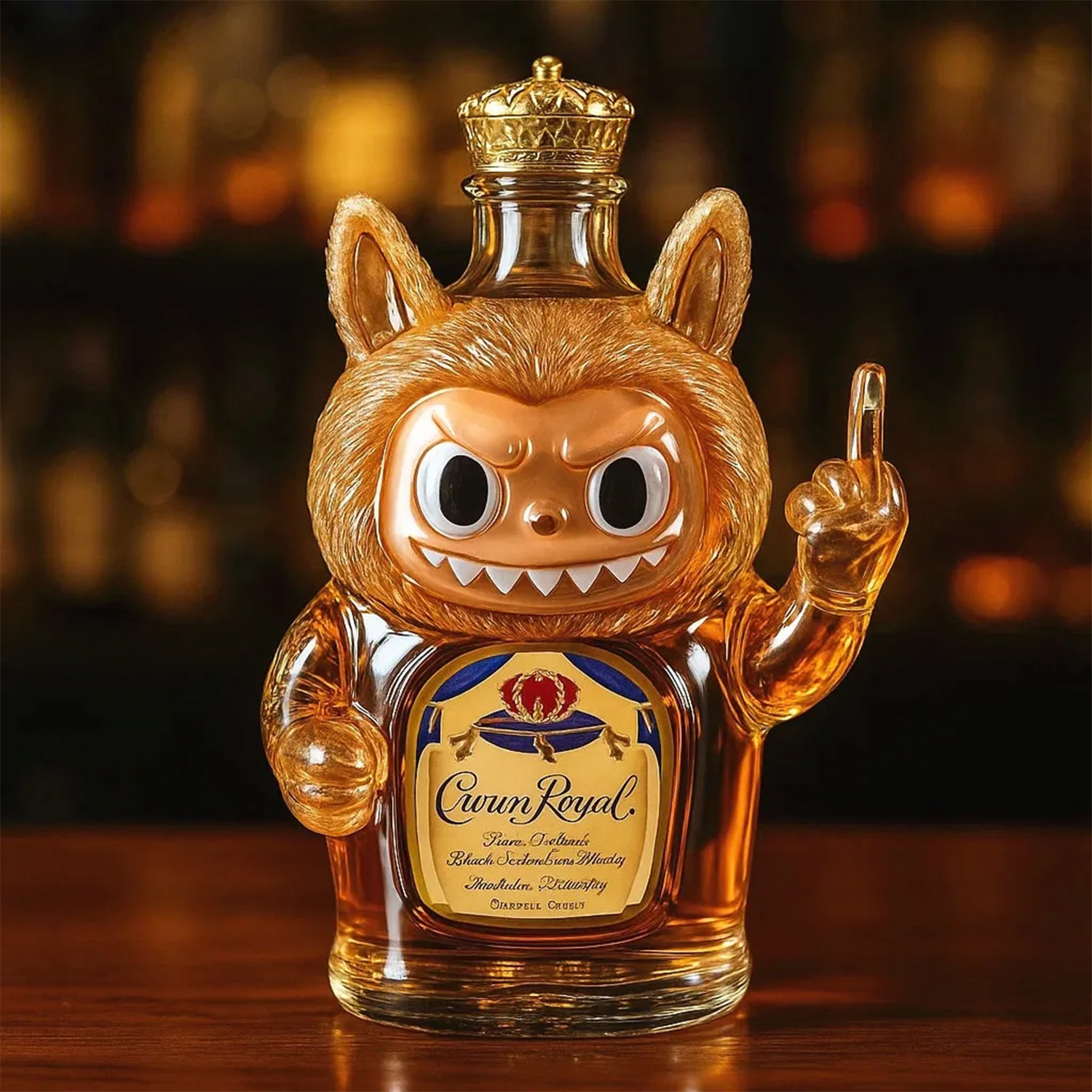
The internet is awash in a strange new phenomenon: AI-generated whiskey decanters featuring bizarre and often illegal combinations of pop culture icons and established liquor brands. From R2-D2 sporting a Jack Daniel's logo to Hogwarts crests adorning bottles supposedly filled with Crown Royal, these products are flooding online marketplaces, raising serious questions about copyright infringement, misleading advertising, and the overall impact of AI on consumer trust.
A Trend Emerges: Pop Culture Meets Whiskey
The odd trend first became apparent through Google search data. Queries for specific combinations of keywords began to surge, revealing a growing interest in novelty whiskey decanters. In April, "Godzilla Whiskey Decanter" topped the charts, followed by "Jaws 50th Anniversary Whiskey Decanter" in May. While collaborations between alcohol brands and pop culture are not unheard of, the sheer volume and unusual nature of these searches raised red flags.
The turning point came in June with the emergence of "Toothless Whiskey Decanter." Toothless, the beloved dragon from DreamWorks' "How to Train Your Dragon," is hardly known for his love of spirits. A search for this unlikely pairing led to a plethora of AI-generated product pages, each featuring Toothless adorned with various whiskey brands, from Four Roses to Maker's Mark. Closer inspection revealed inconsistencies in the logos and lettering, particularly with cursive fonts like Crown Royal. These decanters, priced between $35 and $50, are readily available across numerous online retailers.
A Sludge Farm of Deepfakes
The reach of these AI-generated decanters is vast, spanning dozens of websites and hundreds of product pages. These pages churn out dubious bottle concepts by combining random search terms. The offerings extend beyond pop culture, encompassing everything from dog breeds (chihuahuas, bulldogs, corgis) to vehicles (police cars, firetrucks, Jeeps). Even NSFW options are available, demonstrating a clear disregard for ethical and legal boundaries.
Despite the vast number of product pages, a striking similarity persists: nearly all of them use the same handful of AI-generated images. This suggests that many of these retailers may be operated by the same source, engaging in a widespread scam.
The websites themselves do little to dispel suspicion. Domain names like Lukalula, Yumilon, Kinginin, and Heeyman sound like the creations of a robot attempting to mimic human language. The product descriptions are equally hollow, filled with nonsensical phrases.
Social Media Fuels the Fire
Despite the questionable nature of these products, social media has played a significant role in driving their popularity. Each trending whiskey decanter search can be traced back to a viral post that sparked initial interest. A TikTok video featuring a Toothless decanter garnered over a million views, while a Facebook ad for a Godzilla decanter received thousands of likes and shares. While some commenters expressed skepticism, many were tempted by the novelty of the products.
This highlights a key issue: the blurring lines between legitimate co-branded alcohol products and outright scams. With companies increasingly collaborating with nostalgic and family-friendly properties, consumers may find it difficult to distinguish between officially licensed merchandise and AI-generated fakes.
The Reality Behind the "Buy Now" Button
While Google Trends data suggests that these decanters are being purchased, obtaining genuine customer feedback is challenging. Most AI retailers lack review sections, and those that do often feature suspiciously unengaging comments.
However, posts on platforms like Reddit provide a more accurate picture. One user shared a side-by-side comparison of the advertised Godzilla bottle and the actual product received: a puny shot glass with poorly defined features.
Review platforms like TrustPilot are filled with similar complaints. Customers accuse Kinginin, a prolific retailer of AI-generated decanters, of misrepresenting their products and offering inadequate refunds. Some customers report never receiving their orders or being asked for additional money to restore a failed delivery.
Multiple users on the "Gundam" subreddit reported ordering Gundam 46th Anniversary whiskey decanters from Joyharbor, a website that has since disappeared. Despite assurances from customer support, the users ultimately received scam emails with dangerous download links.
These experiences highlight a common pattern: bait-and-switch tactics, poor quality products, and unresponsive customer service.
Misleading Cues and Trademark Violations
A recurring complaint revolves around the size of the decanters. While some websites disclose that the products are small, many do not. The advertising images are often misleading, featuring AI-generated bottles in realistic bar settings to create a false sense of scale.
The entire operation is riddled with illegal activities, including misleading advertising, undelivered orders, and blatant trademark violations.
Several liquor brands whose logos were prominently featured on the AI-generated decanters were contacted. While they declined to comment publicly, they took swift action behind the scenes. Within days, all mentions of recognizable whiskey distillers were removed from the offending websites.
These AI-generated bottles have even infiltrated major online retailers like Walmart and Amazon. After being contacted about a particularly egregious example, Walmart removed the offending retailer from its platform.
A Sisyphean Task
The core issue remains: the ease with which AI can be used to create and distribute misleading content. Even if brands aggressively pursue legal action, new websites and AI-generated scams will continue to emerge. It's a never-ending battle against a constantly evolving threat.
The era of AI-generated scams is here to stay, and it's spreading throughout the world of whiskey and beyond. Consumers must exercise caution and critical thinking when making online purchases, particularly when dealing with unfamiliar websites and suspiciously low prices.


No comments:
Post a Comment